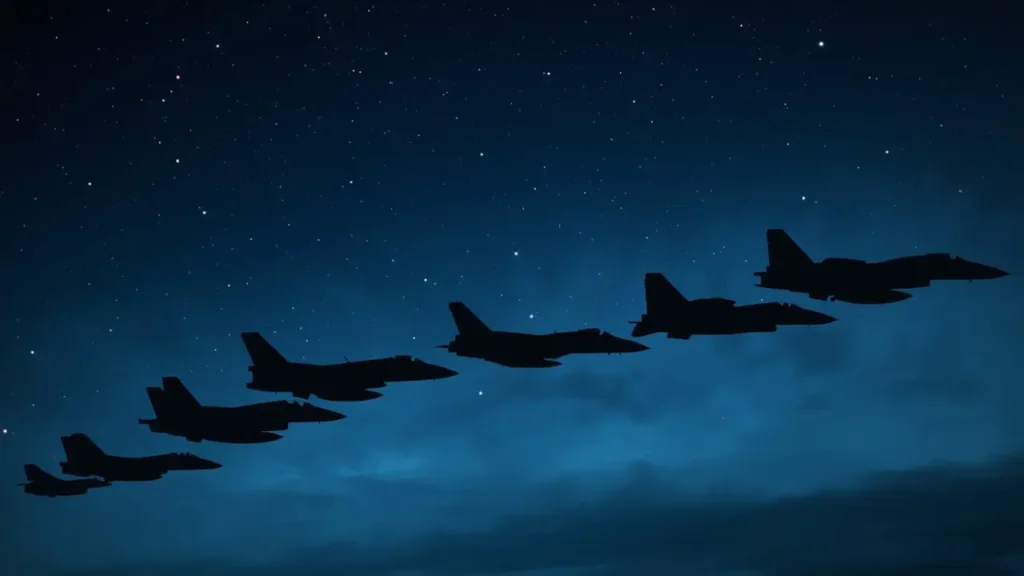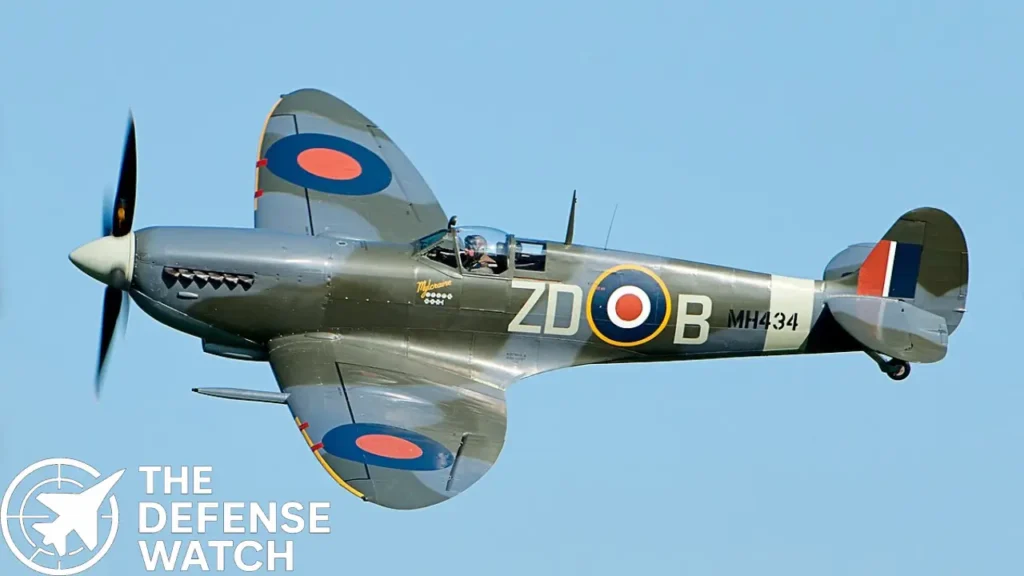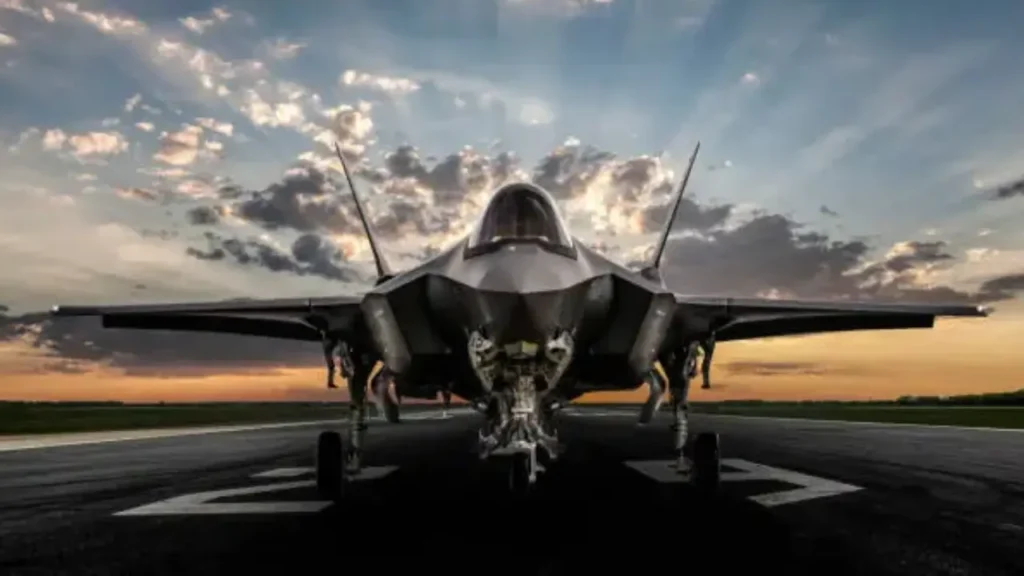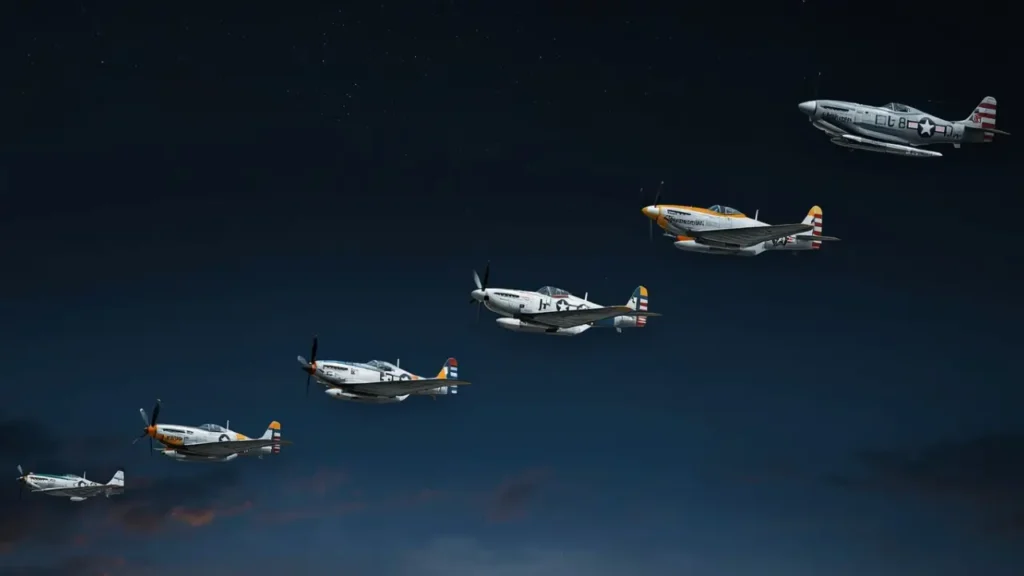Over the history of aerial warfare, certain fighter jets have transcended their technical specs to become lasting symbols of national power, technological progress, and combat prowess. These aircraft are not just machines—they are legends. In this article for TheDefenseWatch.com, we count down the top 10 most famous fighter jets of all time, highlighting what made each one iconic, and situating them in the broader sweep of airpower history.
What Makes a Fighter Jet “Famous”?
Before diving into the list, it’s worth reflecting on criteria. A fighter earns “famous” status through a mix of combat performance, export success, technical innovation, longevity, cultural resonance, and symbolic value. Some jets were game-changers in their era, others defined generations, and a few still fly in modern skies as reminders of their era.

Top 10 Most Famous Fighter Jets (in no particular order)
1. Supermarine Spitfire
The Spitfire remains an icon of WWII and British resilience. Its elegant elliptical wings, nimble performance, and continual upgrades made it a mainstay of RAF defense, especially during the Battle of Britain. Its name continues to evoke heritage, valor, and aerial mastery.
(FlyAJetFighter lists it among the most famous historic fighters.)

2. Messerschmitt Me 262
Though it flew late in WWII, the Me 262 is remembered as the first operational jet fighter. Its brief combat presence and revolutionary design left an outsized legacy on postwar jet development, influencing generations of jet engineers.
3. North American F-86 Sabre
The F-86 became a symbol of early jet-era combat, especially during the Korean War. Its dogfights against MiG-15s over “MiG Alley” showcased the dawn of jet-versus-jet warfare. Exported widely and revered for its handling, it remains a classic name in aviation history.
4. McDonnell Douglas F-4 Phantom II
The Phantom is one of the most produced and operationally diverse fighters in history. It served in air-to-air, air-to-ground, and reconnaissance roles across many air forces. With high speed and heavy payload capacity, it was central in Vietnam, the Cold War, and regionally in the Middle East.
5. Mikoyan-Gurevich MiG-21 (“Fishbed”)
Arguably one of the most widely produced supersonic fighter jets ever, with over 11,000 units built, the MiG-21 flew with dozens of nations over decades. Its simplicity, cost-effectiveness, and sheer ubiquity cemented its fame.
6. McDonnell Douglas F-15 Eagle
Designed to guarantee air superiority, the F-15 has earned a legendary reputation. It first flew in 1972 and continues to serve decades later. It is often credited with an undefeated record in air-to-air engagements.
7. Lockheed Martin F-22 Raptor
Among modern fighters, the F-22 stands out for its stealth, supercruise capability, and unmatched air dominance doctrine. Though produced in limited numbers, its advanced features and ceiling of performance make it an aviation icon.

8. Lockheed Martin F-35 Lightning II
The F-35 is arguably the most visible modern multirole stealth fighter. Deployed across NATO and allied air forces, its sensor fusion, networked warfare capabilities, and export scale make it central to 21st-century airpower strategy.

9. Sukhoi Su-27 / Su-30 Family
The Su-27 and its derivatives (like Su-30) represent Russian air-superiority doctrine. Their agility, power, and export footprint (especially the Su-30 variants) have made them enduring symbols of post-Cold War Eastern aerospace capability.
10. Grumman F-14 Tomcat
The F-14 is famous partly thanks to media (notably Top Gun) but also due to its swing-wing design, high-speed intercept role, and long service with the U.S. Navy (and later Iran). It remains a cultural and technical icon in naval aviation.
Honorable Mentions
Other fighters could easily be on extended versions of this list: the F-16 Fighting Falcon (versatility and export success), Dassault Mirage series, Eurofighter Typhoon, and MiG-29/35 (fulcrum family).
Historical Context & Evolution of Fighter Strategy
Jet Age Revolution
The transition from propeller fighters (like Spitfire) to jet-powered combat (Me 262, F-86) marked a paradigm shift. Speed, altitude, thrust-to-weight ratio, and radar-guided missiles became decisive.

Cold War & Multirole Adaptation
Aircraft like the F-4 and MiG-21 reflected versatility under tight budgets. They were expected to perform in suppression, interception, and close air support roles.
Enter Stealth & Sensor Fusion
From the 1990s onward, jets like the F-22 and F-35 introduced low observability, integrated sensors, networked warfare, and data fusion as central features.
Analysis & Contemporary Resonance
Several trends emerge from this list:
- Longevity matters. Aircraft that stay in service—either by upgrades or export—amass prestige by longevity (e.g. F-15, MiG-21).
- Export and alliances amplify fame. Jets that fly in many air forces (MiG-21, F-35, Su-30) leave broader footprints.
- Technological leaps define eras. Me 262 launched the jet age. F-22 set stealth benchmarks. F-35 is now spearheading networked multirole doctrine.
In 2025 and beyond, newer designs—sixth-generation platforms and optionally crewed systems—may earn similar fame. But the aircraft above will continue to be taught, showcased, and honored as foundational pillars of airpower.
FAQs
The F-16 is highly deserving—in many extended-lists it features prominently thanks to its export and combat record. But for a “top 10,” we selected those whose fame spans across eras, innovation, and symbolic impact.
Yes — the F-15, F-4, MiG-21, and many others amassed combat records. The F-15 is particularly noted for its strong air-to-air success rate.
Yes. The F-35, Su-30 family, upgraded F-15 variants, and a few legacy platforms (often in export roles) remain active today.
Possibly, over time. But fame accumulates over decades. Even as next-generation jets arrive, these historic icons will remain reference points in aviation lore.
Get real time update about this post category directly on your device, subscribe now.


4 comments
[…] company positions the price point significantly lower than legacy crewed fighters — approximately $27–30 million per unit is cited by some […]
[…] suitability is non-negotiable. Strengthening land-based jets for sea duty is costly and risky — purpose-built designs often win […]
[…] exercises. As the CCA vision matures, such teaming concepts could reshape how the U.S. projects airpower — blending human judgment with autonomous persistence, creating more flexible, resilient, and […]
[…] speeds that pushed the airframe to its limits, secured it a recurring place in rankings of Top, Most Famous Fighter Jets, where its notoriety rivals more agile […]